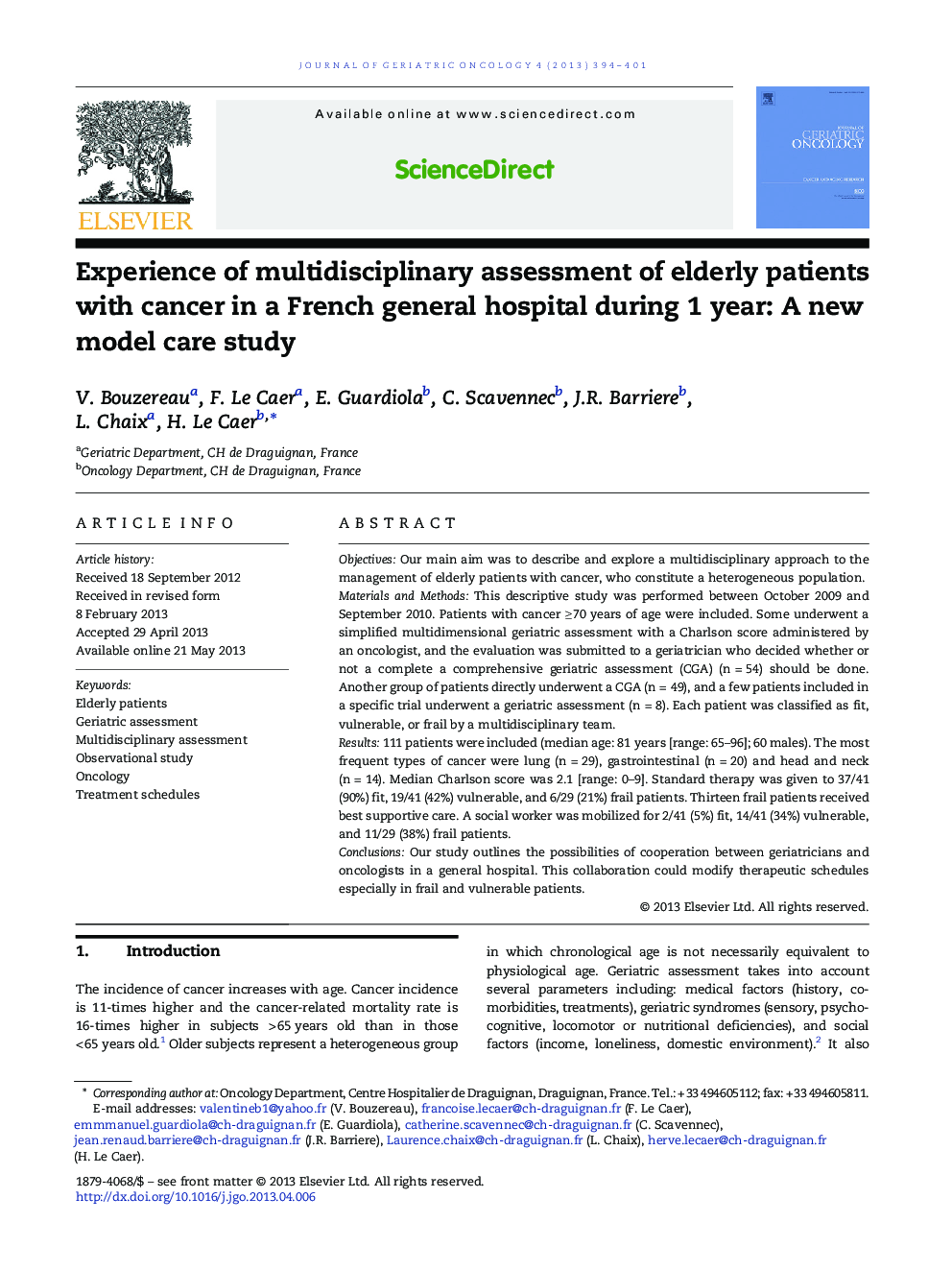| Article ID | Journal | Published Year | Pages | File Type |
|---|---|---|---|---|
| 1912877 | Journal of Geriatric Oncology | 2013 | 8 Pages |
ObjectivesOur main aim was to describe and explore a multidisciplinary approach to the management of elderly patients with cancer, who constitute a heterogeneous population.Materials and MethodsThis descriptive study was performed between October 2009 and September 2010. Patients with cancer ≥ 70 years of age were included. Some underwent a simplified multidimensional geriatric assessment with a Charlson score administered by an oncologist, and the evaluation was submitted to a geriatrician who decided whether or not a complete a comprehensive geriatric assessment (CGA) (n = 54) should be done. Another group of patients directly underwent a CGA (n = 49), and a few patients included in a specific trial underwent a geriatric assessment (n = 8). Each patient was classified as fit, vulnerable, or frail by a multidisciplinary team.Results111 patients were included (median age: 81 years [range: 65–96]; 60 males). The most frequent types of cancer were lung (n = 29), gastrointestinal (n = 20) and head and neck (n = 14). Median Charlson score was 2.1 [range: 0–9]. Standard therapy was given to 37/41 (90%) fit, 19/41 (42%) vulnerable, and 6/29 (21%) frail patients. Thirteen frail patients received best supportive care. A social worker was mobilized for 2/41 (5%) fit, 14/41 (34%) vulnerable, and 11/29 (38%) frail patients.ConclusionsOur study outlines the possibilities of cooperation between geriatricians and oncologists in a general hospital. This collaboration could modify therapeutic schedules especially in frail and vulnerable patients.
